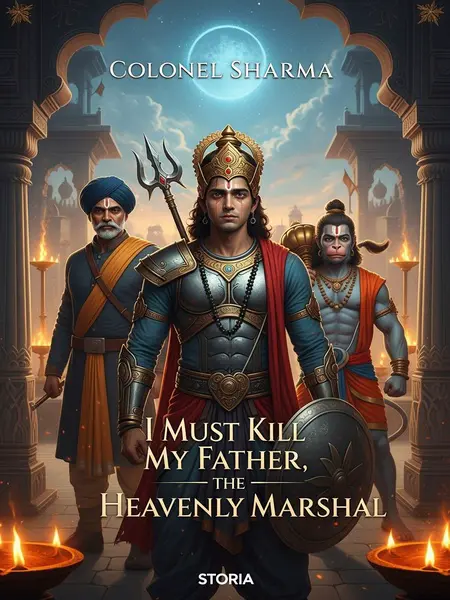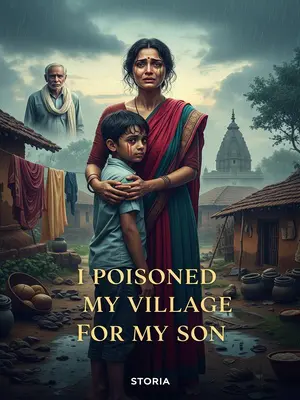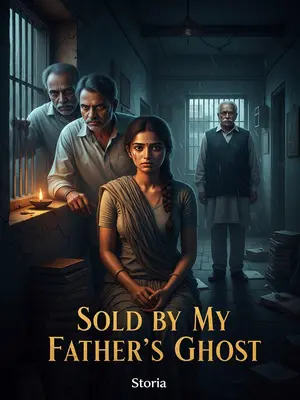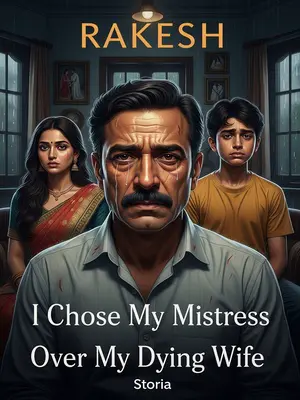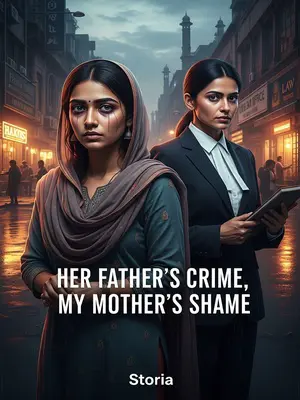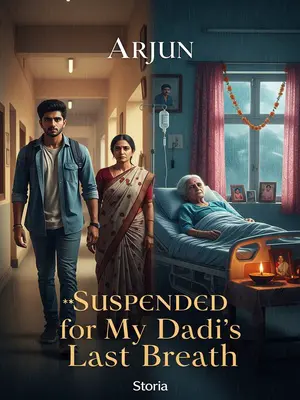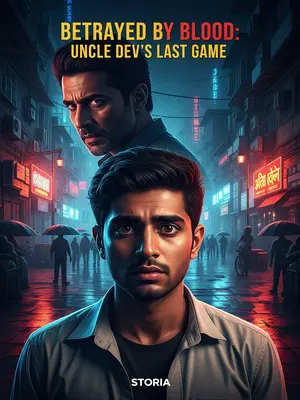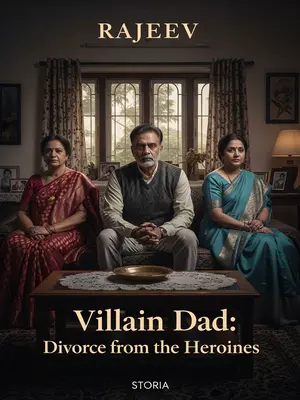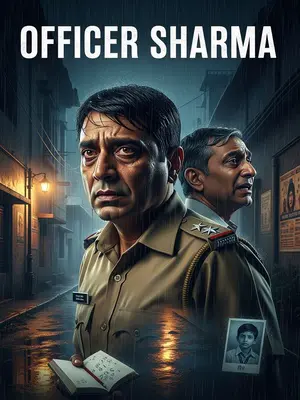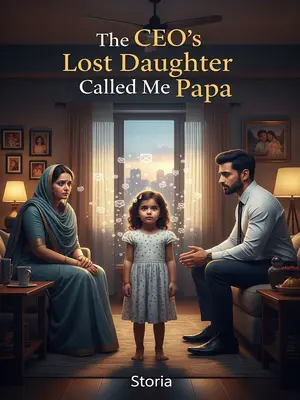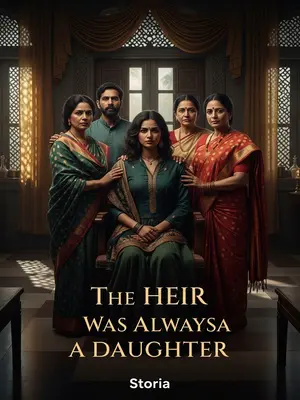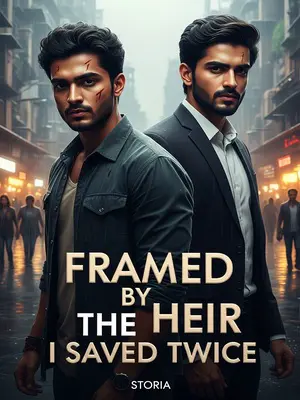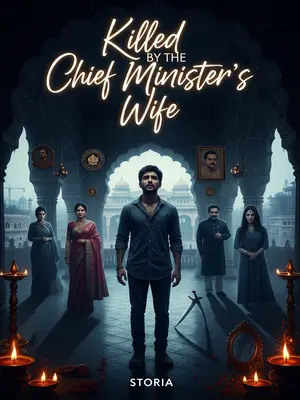Chapter 3: Rebellion and the Yatra
After reaching Swarglok, I ran into Arjun. He said, whether it’s Swami Vivekananda or Rishi Deepak, all of them pretend not to meddle, but can’t resist poking their noses in.
“If you could kill your father for his mistakes, then what about devas and rishis? Who judges them? Your father is always your father, devas always devas, no matter their sins. Words like loyalty and filial piety—they keep us chained.”
I was silent, thinking of all the books I hadn’t read. “Three eyes see clearer than two.”
Arjun paused, lips twitching. “You have three heads and six arms, six eyes, but you see nothing. Read more books, na.”
Me: “...”
Of all the devas in Swarglok, only Arjun could be called half a friend. But even he could only offer the sympathy of a fellow prisoner. I always felt this world was twisted, unfair. I shouldn’t be the only one, fierce and alone, wandering marble halls while devas plot against mortals, just like the Nagas once did.
Until that day. Hanuman told me: Colonel Sharma deserves to die. I’ll block the chakra, you finish him.
Flames all around, blood still on my lips, eyes burning red. After everything—rebirth, exile, betrayal—that’s all I’d ever wanted to hear: just that—Colonel Sharma deserves to die.
He doesn’t deserve to be a father, takes no responsibility, wants to grind my bones to dust. Of course I, Kartikeya, should kill him. If anyone had ever spoken those words, maybe I could’ve moved on. But nobody did. Not my guru, not my mother, not the devas or rishis. Instead, they protected him, made him the Chakra-bearing Heavenly King, Grand Marshal Subduing Demons.
I looked at Hanuman, and for the first time in a thousand years, I laughed—a wild, broken laughter, flames crackling across the sky, echoing off palace domes and shattering in the wind, breaking into sobs full of old pain and new freedom.
“Fine. Let’s go kill my father.”
That day, Hanuman burst from the flames—golden armour blackened, cloak tattered, killing intent fierce as Kali’s. In a blink, he stood before Colonel Sharma.
Sharma, on instinct, hurled the Shining Chakra. Hanuman was trapped, but not even magic could bind him. He broke free in a flash, indomitable as always.
By the time he escaped, I was already in front of Colonel Sharma, face a mask of winter, spear blazing, fire dragon ten feet high, clouds and smoke rolling, heavenly soldiers fleeing. Sharma’s eyes went wide with terror.
Just then, a sigh floated down from the heavens, softer than a mother’s lullaby, heavier than destiny.
A lamp glowed like a Diwali diya, then light poured from all directions—so bright I could see nothing, but I knew: Rishi Deepak had arrived.
I knew that sigh well. Back in the day, when I’d accepted the chakra-dad, fought for Raja Jai, and taken on Duryodhan, Rishi Deepak was there at Kaveripur too. When the Nagas sent a rain of fire arrows—unquenchable fire, burning everything—nothing could stop it. I survived, but I couldn’t save everyone. Once touched by that fire, you could only watch yourself burn to ash.
I’ve held dying children, girls, old men, warriors—their last screams echoing in my ears. I rode my Peacock Wheels to kill, burning for justice, but Rishi Deepak stopped me. “Why?” I asked, voice raw.
He said, “No rush, beta. Fate hasn’t come.”
“So many dead, who cares about fate?”
Back then, Deepak-ji still had that guru aura—wise, above it all, like the senior-most teacher at the ashram. “Even if you take revenge, can you stop the fire? Can you save them?”
I was angry. “Better to try than do nothing!”
Rishi Deepak shook his head. “Doing nothing is also fate.”
I didn’t get it then. Later, I understood. Deepak-ji did nothing. Kaveripur became a graveyard. People died, devas broke, and only Princess Meera managed to save anyone. Deepak pulled her in to fight the Nagas. As for the dead, he just sighed, “Fate is so. All beings are ignorant—thus, calamity.”
Now, Rishi Deepak sighs for me. Sighs that I, too, have a destined calamity.
I’d just fought Hanuman. Didn’t need full force to kill Sharma—half a move would’ve done it. But Deepak ambushed me. Ten thousand feet of light—blinding, suffocating, crushing my fire like a wet blanket on a bonfire.
When I woke up, I was back in prison. Old habits die hard.
What happened after, Arjun told me. Hanuman was defeated. After you and Sharma withdrew, I fought him for a while—but it wasn’t really a fight. We just changed forms, wandered, drank thandai, chatted. I asked him, how did we end up here? He drank, looked tired. He just couldn’t hold back.
“He asked, if there are devas, and they get puja, why do the floods still come? Why do traitors prosper, why are there still ranks in Swarglok, why must I bow to anyone?”
Arjun said, “What answer could I give? I had none. I just told him—let it go. This is the world, yaar. If you can’t win, accept it.”
Hanuman refused. Even in Baba’s furnace, he refused. He fought up to Indra Bhavan, only to get slapped under a mountain by Swami Vivekananda at the Mango Banquet.
“Locked for five hundred years. If you don’t apologise to your chakra-dad, you’ll be locked up too.”
I thought about it, shrugged. “Go check on Hanuman for me, will you? Tell him—five hundred years from now, I’ll find him. Whatever he wants, I’ll help.”
“I’m not going.”
Me: “...”
“Come on, I’m getting locked for five centuries. Can’t you do me this one favour?”
Arjun coughed, awkward. “It’s not that I don’t want to help. It’s just—I just burned Kishkindha. If I go, I’ll get my head bitten off. Hanuman knows I set that fire to save a few monkeys, but—”
Me: “...”
“Swarglok won’t spare a few monkeys?”
Arjun smiled, the weary, knowing smile of someone who’s seen too much. “You know the answer, Kartikeya.”
I sneered, spat on the floor, and grumbled: “Kya bakwaas duniya hai.”
When Arjun left, he paused at the door, his back to me, hesitation rare in his voice. “Five hundred years from now, Swarglok and the ashram are planning a Yatra to the West. Since you don’t want to confess, maybe I’ll get you sent too.”
I narrowed my eyes at his three-eyed face, something twisting in my chest. What was he hiding?
